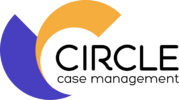Smart devices are really smart!!!

"Smart devices are really smart!!!
Did you know that you can have full access to a smart phone with your voice, the blink of an eye or even a muscle twitch?
Big companies like Apple and Google have totally embraced inclusive design and we can all enjoy the benefits of this innovative work. Smart phones and tablets now come with a variety of features making them accessible to people with a wide range of disabilities; from somebody with a light visual impairment who would prefer larger font size, to somebody with a high level spinal cord injury with minimum movement in their body. A significant amount of these features come as standard on any of these devices and in addition, with the implementation of specialised hardware it is possible for people with a significant degree of disability to have full control of a smart device. The development of smart peripherals like sockets, lights, thermostats and infra red transmitters can put a smart device at the centre of environmental control. The possibilities are literally endless! "
What is a Smart Device?
Smart devices are an electronic device that connects to other devices or networks via wireless protocols such as Bluetooth, Zigbee, NFC, Wi-Fi, LiFi, 5G, etc., that can operate to some extent interactively and autonomously. Popular smart devices are smartphones, smart cars, smart thermostats, smart doorbells, smart locks, smart refrigerators, phablets and tablets, smartwatches, smart bands, smart key chains, and many others. The term can also refer to a device that exhibits some properties of ubiquitous computing, including—although not necessarily—artificial intelligence. Smart devices can be designed to support a variety of form factors, a range of properties pertaining to ubiquitous computing and to be used in three main system environments: physical world, human-centered environments and distributed computing environments. Smart Homes indicate the presence of sensors and some detection devices, appliances and a database to control them.
What is Assistive Technology?
The phrase ‘assistive technology’ is often used to describe products or systems that support and assist individuals with disabilities, restricted mobility or other impairments to perform functions that might otherwise be difficult or impossible.
What is the purpose of Assistive Technology?
The purpose of assistive products is to maintain or improve an individual's functioning and independence, thereby promoting their well-being. They enable people to live healthy, productive, independent and dignified lives, and to participate in education, the labour market and civic life.
Can Assistive Technology help your client?
Assistive technology promotes independence by enabling people to perform tasks they were formerly unable to accomplish, or had great difficulty accomplishing, by providing enhancements to, or changing methods of interacting with, the technology needed to accomplish such tasks. In schools, assistive technology can be critical in allowing students with disabilities access the general education curriculum. Students who experience challenges writing or keyboarding, for example, can use voice recognition software instead. Assistive technologies assist people who are recovering from strokes and people who have abstained injuries that effect their daily tasks.
Adaptive or Assistive Technology?
Adaptive technology and assistive technology are different. Assistive technology is something that is used to help disabled people, while adaptive technology covers items that are specifically designed for disabled people and would seldom be used by a non-disabled person. In other words, assistive technology is any object or system that helps people with disabilities, while adaptive technology is specifically designed for disabled people. Consequently, adaptive technology is a subset of assistive technology. Adaptive technology often refers specifically to electronic and information technology access.
How do I organise Assistive Technology or Smart Devices for my client?
Assistive Technology Expert, Christos Christoforidis, is available to discuss your clients requirements and the endless technology options available. To speak to Christos, email hello@circlecm.com or call 01297 24145.
Posted by Nicola Kelly on October 10th 2022

